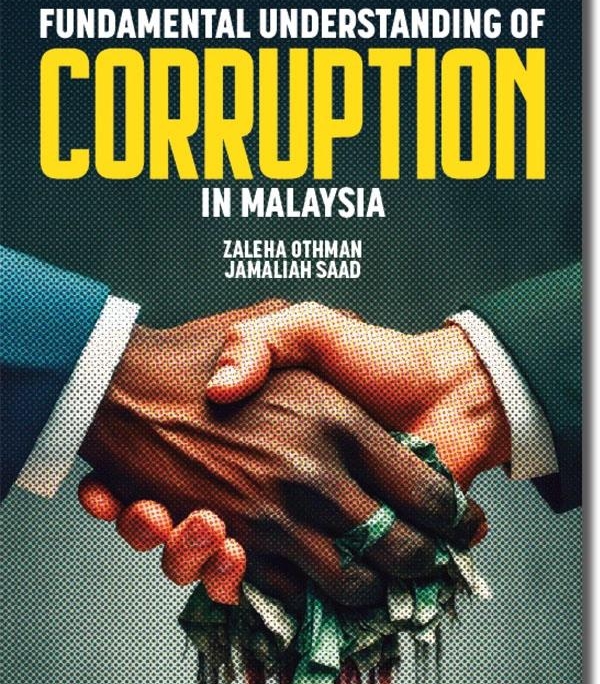Corruption — The Most Lethal Cancer of a Nation
Throughout the long course of human civilization, from ancient empires to modern states, one factor has repeatedly determined the rise and fall of nations — corruption. It may appear to be merely the collusion between power and money, yet in essence, it is a malignant cancer that corrodes the very foundations of a nation from within. History has warned us time and again: no country can remain prosperous and stable when corruption becomes pervasive.
1. The Nature of Corruption — The Decay of Power and the Greed of Man
Power, in its ideal form, is a responsibility entrusted by the people. However, when power lacks restraint and oversight becomes a mere formality, it easily mutates into privilege — a tool for personal enrichment.
The root of corruption lies in human greed. “When one person is corrupt, he destroys himself; when all are corrupt, the nation collapses.” Once power and money intertwine, conscience and justice are cast aside. Officials abuse authority, collude with business interests, and plunder public resources, thereby shattering social fairness and eroding public trust.
An ancient proverb says, “Water can carry a boat, but it can also overturn it.” The people’s will is that water. When citizens lose faith in their officials, confidence in the system, and hope for the future, the downfall of the state becomes only a matter of time.
2. The Lessons of History — From Glory to Ruin
In history, almost every great empire has eventually drowned in the swamp of corruption.
Take China, for example: during the Tang Dynasty, the flourishing era of Emperor Xuanzong’s rule gradually gave way to decline due to eunuch dominance and rampant corruption. In the late Ming Dynasty, bribery, nepotism, and bureaucratic decay triggered public resentment, peasant uprisings, and foreign invasion — culminating in the dynasty’s fall.
Similarly, the Roman Empire, once mighty and unmatched, decayed from within as bribery, luxury, and moral corruption took root, leading to its eventual collapse.
These examples reveal a simple truth: corruption is not merely a moral failing, but a systemic weakness in governance. When institutions fail to restrain power, when the law bends before privilege, and when moral values are twisted by greed, even the strongest nation cannot escape decline.
3. The Modern Warning — When a Nation Loses Its Soul
In the modern world, though democratic and legal systems have been established in many countries, corruption remains a persistent shadow.
Some nations are crippled by high-level corruption — state coffers drained, debts mounting, and livelihoods deteriorating. Others, despite their abundant natural resources, remain impoverished because wealth is hoarded by a small circle of elites.
The greatest damage caused by corruption lies not in economic loss, but in the destruction of trust in justice and institutions. When people witness corrupt officials walking free and the powerful evading justice, the moral foundation of society collapses.
The younger generation begins to believe that “bribery is the key to success” and that “connections matter more than integrity.” Once this mindset spreads, it poisons the very spirit of a nation.
4. Anti-Corruption — The Lifeline of a Nation
Anti-corruption is not a political slogan; it is an act of national self-rescue.
For it to succeed, three essential foundations must exist:
-
Rule of law and checks on power. Without an independent judiciary, anti-corruption efforts become nothing more than rhetoric.
-
Transparency and accountability. Government operations must be visible, answerable, and open to public scrutiny.
-
Moral and civic education. Laws can punish wrongdoing, but only moral education can prevent it. A society that instills honesty, fairness, and responsibility from a young age builds true resistance against corruption.
The experience of successful nations shows that selective anti-corruption is the most dangerous hypocrisy. When the law is used to punish opponents while protecting allies, justice loses its credibility — and corruption becomes even more entrenched.
5. Conclusion — The Nation’s Future Lies in Integrity
Corruption is poison — not only to governments, but to the soul of a people. It silences the righteous, empowers the wicked, disheartens the diligent, and rewards the deceitful.
If a nation seeks lasting peace and prosperity, integrity must become its norm, and corruption must become its common enemy. When public servants act with conscience, when citizens dare to question, and when institutions remain incorruptible, true national strength will emerge.
Let us remember:
There is no enemy more destructive than corruption, and no defense stronger than integrity.
History never forgives greed, nor does time pardon those who betray the public trust.
Only through honesty can a nation reclaim its dignity; only through justice can it achieve enduring stability.

